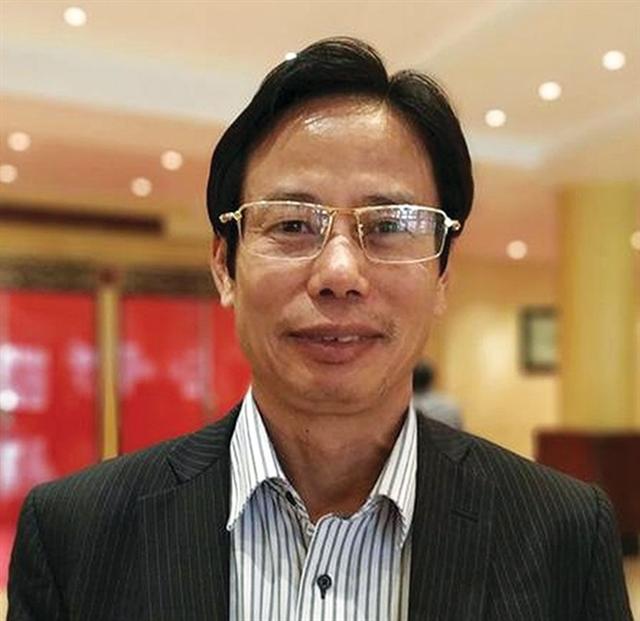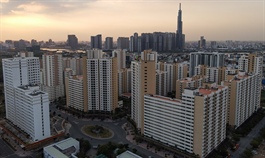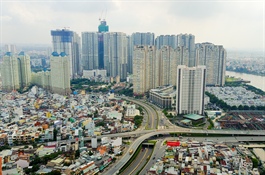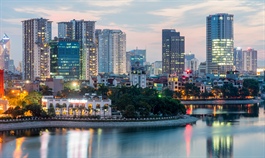Department of Overseas Labour displays determination on 2021’s labour export goal
Department of Overseas Labour displays determination on 2021’s labour export goal
Countries are being forced to shift targets when it comes to export of labour across borders, and Vietnam is no exception. Nguyen Gia Liem, deputy director of the Department of Overseas Labour, discussed with VIR’s Hoang Oanh the solutions to reach the goal of sending 90,000 workers abroad in 2021 as well as issues workers need to pay attention to when leaving the country.
According to the 2021 plan, the goal of sending labourers to work abroad is about 90,000 people. Is this possible?

Nguyen Gia Liem, deputy director of the Department of Overseas Labour
|
The target number of labourers to work abroad in 2021 is calculated and determined based on the pandemic situation, the analysis of the market situation, and the needs of the receiving markets, as well as local human resources, and the ability to recruit and train these.
Currently, in some main countries and territories receiving Vietnamese workers, the pandemic situation has been controlled, and many are speeding up the progress of vaccination. It is hoped that the pandemic will be even better controlled in the coming time and they will begin to receive foreign workers to serve the needs of socioeconomic development.
We think it is possible to achieve the set target on the number of workers going abroad in 2021. In fact, in the first quarter of this year, the total number of Vietnamese workers working abroad was 29,541 people, reaching 32.82 per cent of the plan.
What solutions has the Department of Overseas Labour defined to accomplish this goal?
We will develop and submit to competent authorities for promulgation detailed regulations and guidelines for the Law No.69/2020/QH14 from last November of the National Assembly on Vietnamese guest workers under contracts, approved by the 14th National Assembly and effective in 2022. Accordingly, a Vietnamese guest worker under contract may unilaterally terminate their contract in case of being ill-treated, subject to forced labour by the employer, and an explicit risk of direct threat to their life, health, or if sexually harassed while working abroad.
Besides that, we will continue to closely coordinate with diplomatic and relevant agencies of the receiving markets to monitor the situation of employees working abroad, promptly handle arising issues, ensuring the legitimate rights and interests of as well as organising the return of those whose contracts have expired.
In addition, we also continue to negotiate with a number of receiving countries to agree on labour cooperation, such as with Thailand, Malaysia, Israel, Saudi Arabia, Romania, the United States, and Russia, as well as cooperation agreements on human resources development with some localities in Japan.
The situation of workers out of contract but staying in the overseas countries has made it difficult to continue signing new labour export orders, and some have even stopped accepting workers from Vietnam. What can be done about this situation?
Some Vietnamese workers did not return home on time when their contracts were terminated, illegally staying and working there. This situation has affected the image of Vietnamese workers abroad, adversely affecting the maintenance and expansion of market shares.
To rectify the situation, we have focused on implementing a number of specific solutions. These include requiring enterprises and organisations sending workers abroad to improve the quality of recruitment, training, and orientation education for workers before leaving and studying and amending contents and regulations on administrative sanctions for violations of those working abroad.
We must also strengthen propaganda to raise awareness of workers, families, and communities in mobilising overseas workers to comply with labour contracts and laws of the host country and return home on time after contract termination, as well as strengthen activities to support and introduce jobs to attract and encourage workers to return home on time after the end of their labour contracts.
For workers who have gone abroad, how has the department taken action to protect their rights?
Currently, there are six labour management boards under the Vietnam Representative Office in six countries with a large number of Vietnamese workers working in Japan, South Korea, Taiwan, Malaysia, the United Arab Emirates, and Saudi Arabia.
Particularly in South Korea, there is also a labour management office working through the EPS Program under the Department of Overseas Labour Centre.
The law also clearly stipulates that enterprises with more than 100 employees working abroad must have a representative office and appoint a representative to manage the labourers sent by the enterprise to work in the host country.
The management board then regularly coordinates with the agencies of the host country and the overseas representative labour managers of the sending enterprise to monitor the situation of the workers and promptly support and handle arising problems, ensuring the legitimate rights and interests of employees during working time.
For countries that have not yet established a labour management board, the Vietnamese representative in the host country will manage and assist in solving problems related to Vietnamese workers in these areas.
In the current context, what advice or recommendations do you have for people wishing to work abroad?
Employees wishing to work abroad need to actively learn the provisions of the law including forms of going to work, rights and obligations, fees payable according to regulations, and related information from other agencies to ensure the process is legal, safe, and efficient.
They also need to actively equip themselves with foreign language knowledge and necessary skills in accordance with the requirements of the target market.
The fact that Vietnamese citizens go abroad through unofficial channels and then reside and work illegally has many potential risks, such as the risk of not finding a job, becoming an illegal resident, and then getting arrested, fined, and deported if found.
If there is no legal labour contract or type of work, the employee is not entitled to insurance regimes and is not protected by the law of the host country.
In addition, due to insufficient information about the employer, working and living conditions, lack of understanding of the culture and customs of the destination country, and not being equipped with working and training skills, these citizens are more at risk of becoming victims of human trafficking or forced labour as well as many other difficulties, but are not recognised and protected by the laws of the host country.
Citizens going to work abroad must register with Vietnamese authorities, diplomatic missions, and consulates in the country where they go to work if they encounter difficulties or arise during their stay.
Otherwise, it will be difficult for Vietnamese authorities to advise and support their legitimate rights and interests in accordance with the provisions of Vietnamese law, the law of the host country, and the international system.




























